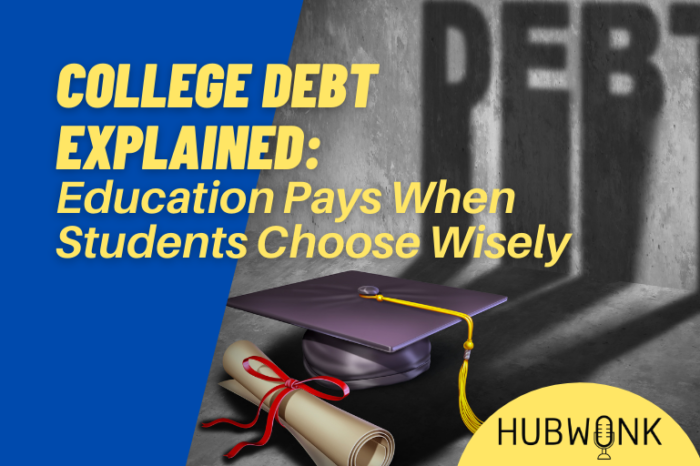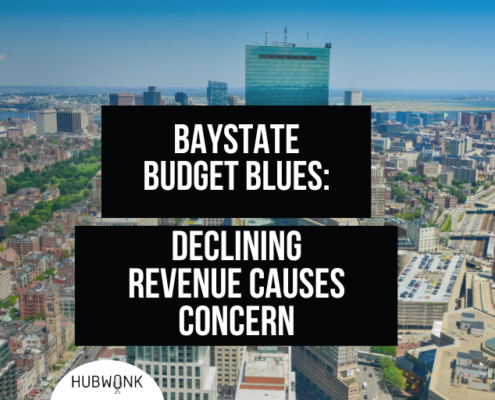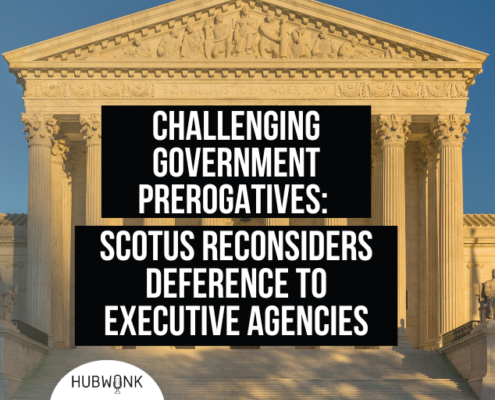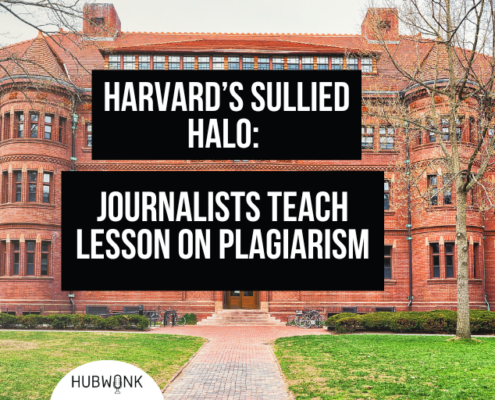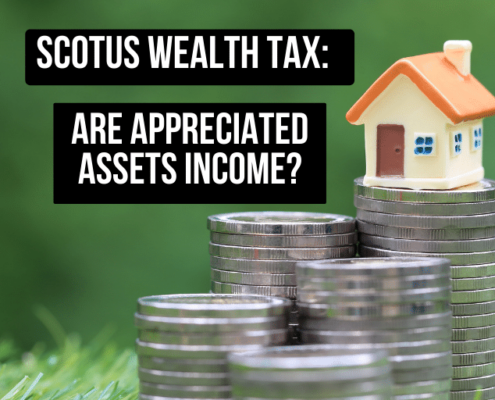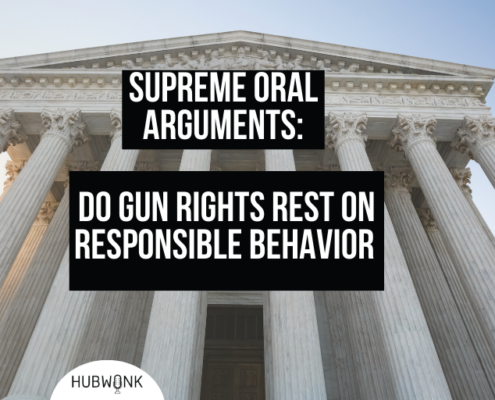College Debt Explained: Education Pays When Students Choose Wisely
Hubwonk host Joe Selvaggi talks with American Enterprise Institute resident fellow and education economist Beth Akers about the American student debt crisis (totalling $1.6 trillion). They explore who borrows, who is in debt, and which policy choices might best serve the financial needs of every student.
Related: The Boston Globe op-ed: “A Truly Progressive Student Loan Policy”
Guest:
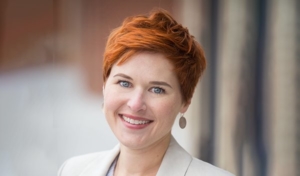 Beth Akers is an economist focusing on the labor market and higher education. She is currently a resident fellow at the American Enterprise Institute. Previously, she was a senior fellow at the Manhattan Institute for Policy Research, a fellow at the Brookings Institution and a staff economist with the Council of Economic Advisors under President George W. Bush. Akers is the author of Making College Pay: An Economist Explains How to Make a Smart Bet on College and coauthor of Game of Loans: The Rhetoric and Reality of Student Debt. Her writing and research have been featured in, among others, The New York Times, USA Today, The Wall Street Journal, The Washington Post, Bloomberg, Quartz, Newsweek, and The Hill. She has appeared on CNBC, ABC News, Bloomberg TV, C-SPAN, among other TV and radio networks. Akers received a B.S. in mathematics and economics from SUNY Albany and a Ph.D. in economics from Columbia University.
Beth Akers is an economist focusing on the labor market and higher education. She is currently a resident fellow at the American Enterprise Institute. Previously, she was a senior fellow at the Manhattan Institute for Policy Research, a fellow at the Brookings Institution and a staff economist with the Council of Economic Advisors under President George W. Bush. Akers is the author of Making College Pay: An Economist Explains How to Make a Smart Bet on College and coauthor of Game of Loans: The Rhetoric and Reality of Student Debt. Her writing and research have been featured in, among others, The New York Times, USA Today, The Wall Street Journal, The Washington Post, Bloomberg, Quartz, Newsweek, and The Hill. She has appeared on CNBC, ABC News, Bloomberg TV, C-SPAN, among other TV and radio networks. Akers received a B.S. in mathematics and economics from SUNY Albany and a Ph.D. in economics from Columbia University.
Get new episodes of Hubwonk in your inbox!
Recent Episodes:

